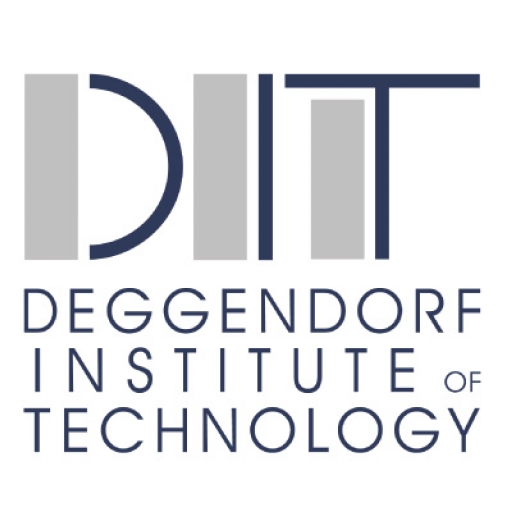Photos of university
The Master of Science in Molecular Medicine at Ulm University offers a comprehensive and interdisciplinary curriculum designed to prepare students for a career in biomedical research, clinical applications, and biotechnology. This program emphasizes a deep understanding of the molecular mechanisms underlying human diseases, combining theoretical knowledge with practical laboratory skills. Students will explore areas such as gene regulation, cell biology, molecular diagnostics, and translational medicine, equipping them with the tools necessary to contribute to innovative medical research and therapeutic development. The program features advanced coursework in molecular biology, biochemistry, genetics, and experimental techniques, complemented by hands-on laboratory training and project work. Students are encouraged to engage in research projects within university laboratories, fostering critical thinking, problem-solving abilities, and experience in scientific communication. Collaborations with clinical institutions and industry partners provide insights into current challenges and cutting-edge solutions in molecular medicine. The program aims to produce graduates who are well-prepared for careers in academia, industry, or healthcare, with a solid foundation in molecular research methods and a thorough understanding of medical applications. Through a mix of coursework, research, and internships, students will develop the necessary skills to analyze complex biological data, design experiments, and translate scientific discoveries into practical medical advancements. Ulm University's state-of-the-art facilities and experienced faculty provide an ideal environment for aspiring molecular medicine professionals. Graduates of this program will be equipped to contribute significantly to the fields of personalized medicine, molecular diagnostics, drug development, and regenerative medicine, playing a vital role in advancing healthcare and improving patient outcomes worldwide.
The Master’s degree program in Molecular Medicine at Ulm University offers an interdisciplinary and research-oriented education designed to prepare students for careers in biomedical research, healthcare, and related fields. The program provides comprehensive knowledge of molecular and cellular mechanisms underlying health and disease, integrating principles from biochemistry, molecular biology, genetics, and medicine. Students will explore the molecular basis of diseases such as cancer, cardiovascular diseases, neurodegenerative disorders, and infectious diseases, gaining insights into pathogenesis and innovative diagnostic and therapeutic approaches.
Throughout the program, students engage in advanced coursework covering key topics including molecular genetics, cell signaling pathways, structural biology, bioinformatics, and experimental techniques. The curriculum emphasizes translational research, bridging laboratory findings with clinical applications to foster the development of new diagnostic tools and targeted treatments. In addition to theoretical knowledge, students participate in practical laboratory work, supervised research projects, and internships that provide hands-on experience with cutting-edge technologies such as next-generation sequencing, proteomics, microscopy, and bioinformatics analysis.
The Master’s program encourages critical thinking, scientific communication, and interdisciplinary collaboration, preparing graduates for doctoral studies or careers in biomedical research, pharmaceutical industries, biotech companies, or healthcare organizations. Ulm University has strong research partnerships with hospitals, research institutes, and industry partners, offering students valuable networking opportunities and exposure to real-world challenges in molecular medicine.
Students are supported by expert faculty members who are active researchers in fields such as cancer biology, molecular genetics, neurobiology, and infectious diseases. The program is structured to be completed within four semesters, culminating in a master's thesis based on a substantial research project. This thesis allows students to deepen their expertise in a specific area of molecular medicine, often resulting in publications or conference presentations.
Overall, the Master’s in Molecular Medicine at Ulm University combines rigorous scientific training with practical research skills, equipping graduates with the knowledge and competencies necessary to contribute to advancements in medical research, diagnostics, and therapeutics, ultimately aiming to improve patient care and health outcomes worldwide.
The Master’s program in Molecular Medicine at Ulm University requires applicants to hold a recognized undergraduate degree in a related field such as Medicine, Biology, Biochemistry, or a similar discipline. Prospective students must demonstrate a solid foundation in core scientific disciplines including molecular biology, genetics, biochemistry, and cell biology. The application process necessitates submission of academic transcripts, a curriculum vitae, a motivational letter outlining research interests and career goals, and proof of English language proficiency if applicable. Some applicants might be asked to provide letters of recommendation or references from previous academic mentors or employers. To ensure a comprehensive understanding of the applicant’s capabilities, specific selection criteria include academic performance, relevant research experience, and motivation for studying molecular medicine. Certain prerequisites may involve prerequisite coursework or practical laboratory experience, which should be documented in the application materials. The program emphasizes interdisciplinary training, so candidates are encouraged to have a broad scientific background. The admission process may include an interview or an assessment to evaluate the candidate’s motivation and suitability for the program. Prospective students should also be aware of linguistic requirements, typically an English proficiency test such as TOEFL or IELTS, unless their prior education was conducted in English. The program admits students from diverse international backgrounds, fostering a multicultural academic environment. Financial considerations, including tuition fees and potential scholarship opportunities, should be reviewed through official university channels. Candidates are advised to submit their applications by the specified deadlines, and incomplete applications may be rejected. Overall, the program aims to select motivated, well-qualified individuals with a keen interest in molecular biomedical research and clinical applications.
The financing of the Molecular Medicine program at Ulm University is primarily supported through a combination of tuition fees, government funding, research grants, and additional funding programs. As a public university in Germany, Ulm University generally offers low or no tuition fees for domestic and European Union students, making access to education more affordable. Non-European Union students may be subject to higher fees, but specific details should be verified with the university’s admissions office.
Funding for the program also benefits from various research grants provided by national and European funding agencies, which support the development of innovative research projects and infrastructure. These grants contribute to the overall financing of the program by enabling cutting-edge laboratories, equipment, and research initiatives that enhance students' learning and research opportunities. The university also collaborates with industry partners, which may provide sponsorships, internships, or project funding that can indirectly support the academic program.
Additionally, students may have access to scholarships, financial aid, or work-study opportunities offered by Ulm University or external organizations. The university actively encourages students to apply for these financial supports to mitigate costs related to living expenses and study materials. International students are advised to explore scholarships for Auslanderstudierende or similar programs that can aid in financing their studies.
Ulm University also promotes participation in competitive research projects, which can provide additional financial resources for students involved in such activities. The university’s strategic focus on biomedical research and innovation ensures ongoing investment in the program's infrastructure, fostering a sustainable financial environment for molecular medicine studies.
In summary, the financing of the Molecular Medicine program at Ulm University is multifaceted, relying on public funding, research grants, industry collaborations, and student scholarships, making it a financially viable program for students interested in pursuing advanced studies in molecular medicine.
The Master’s program in Molecular Medicine at Ulm University is a comprehensive interdisciplinary postgraduate course designed to prepare students for careers in biomedical research, clinical applications, and the biotech industry. The program aims to provide deep theoretical knowledge complemented by practical skills in molecular biology, genetics, biochemistry, and medical sciences. Students engage in a rigorous curriculum that covers fundamental topics such as cell biology, DNA technology, gene regulation, signal transduction pathways, and disease mechanisms, with an emphasis on translational research, which bridges laboratory findings and clinical applications.
The program is structured to include lecture modules, laboratory work, and project-based learning. Students gain hands-on experience in state-of-the-art techniques like PCR, next-generation sequencing, proteomics, and microscopy, enabling them to carry out independent research projects. Ulm University collaborates with local hospitals, research institutes, and industry partners, offering students opportunities for internships and collaborative projects, which enhance their practical expertise and employability.
Moreover, the program focuses on current challenges in medicine, such as cancer biology, neurodegenerative diseases, infectious diseases, and personalized medicine approaches. It prepares students to understand the molecular basis of various health conditions and the development of diagnostic tools and therapeutic strategies. The curriculum is taught in English to attract international students, fostering a diverse academic environment that encourages exchange of ideas and research collaborations.
The program typically lasts four semesters and concludes with a master’s thesis, in which students demonstrate their ability to conduct independent research. Graduates of the Molecular Medicine program are well-equipped to pursue doctoral studies, work in research institutions, pharmaceutical companies, or healthcare industries. Ulm University emphasizes a research-oriented approach, and students are encouraged to participate in scientific conferences and publish their findings.
Admission to the program requires a relevant bachelor's degree, such as Molecular Medicine, Biochemistry, Biology, or related disciplines, along with proof of English language proficiency. The university provides comprehensive support services, including career counseling, research internships, and language courses, to ensure students’ academic and professional success. Overall, the Master’s program in Molecular Medicine at Ulm University offers a robust education that bridges basic scientific research and clinical practice, preparing graduates for the rapidly evolving field of biomedicine.









